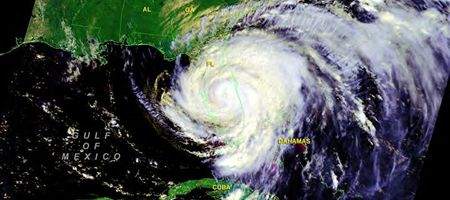Tropical cyclones will cause $109 billion in damages by the end of the century, according to Yale and MIT researchers, because of economic growth as well as climate change.

Global tropical damage is expected to double to $56 billion per year, with climate change adding another $53 billion of damages – equal to 0.01 percent of GDP in 2100.
The US and China will be hardest hit, incurring $25 billion and $15 billion of the additional damages from climate change – a full three-quarters of global damages. Small islands, especially in the Caribbean, will also be hit hard.
“The biggest storms cause most of the damage. With the present climate, almost 93 percent of tropical cyclone damage is caused by only 10 percent of the storms,” says Robert Mendelsohn, lead economist on the project.
“Warming will increase the frequency of these high-intensity storms at least in the North Pacific and North Atlantic Ocean basins, causing most of the increase in damage.”
The authors based their estimates on a future global population of nine billion and an annual increase of approximately three percent in gross world product until 2100.
“More people making a lot more income will put more capital in harm’s way,” says Mendelsohn.
Tropical cyclones today cause $26 billion in global damages, which is four percent of gross world product. North America and East Asia account for 88 percent of these damages, thanks to powerful storms and well-developed coastlines.
The future economic damage from tropical cyclones will be less than $1 billion a year in Europe and South America because there are few storms there, and the damage in Africa will be low because, Mendelsohn said, there is “relatively little in harm’s way.”
Damages in Asia and Central America are expected to grow rapidly, in line with high economic growth. The Caribbean-Central America region will have the highest damage per unit of gross domestic product, at 37 percent.
“When you calculate damages as a fraction of GDP, island nations are hit disproportionately hard,” says Mendelsohn.






